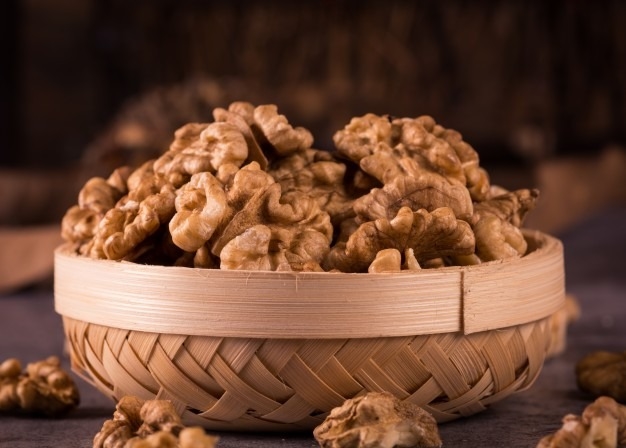
5 Reasons To Include Walnuts In Your Child’s Diet
5 Feb 2018 | 4 min Read
Aditi Ahuja
Author | 72 Articles
Do you know that walnuts are one of the oldest known tree foods in the world and China is the largest producer of walnuts in the world!!
While being a mother of a fussy eater for last many years I have learned 2 important things-
- Developing a love for food in some kids and that too all kinds of foods is not easy, so whatever little they eat should be packed with all kinds of nutrients. In short Quality is more important than quantity.
- As a mother one should never give up on her quest for finding foods and nutritional advice’s which are beneficial for her kids.
It’s a common knowledge that nuts or dry fruits are a very good source of nutrition for kids and I had included almonds in my kid’s diet since she was a toddler, but recently when a friend told me about how I should include walnuts in my kids daily diet, and I searched for its benefits, I felt like sharing it with everyone.
- Walnuts are very rich in omega-3 fatty acids, which can help in maintaining normal blood pressure and good heart health of our kids. They help; maintain; normal arterial flow of blood. They are also rich in poly and mono-unsaturated fats which can help reduce LDL, which is the bad cholesterol in the body. When earlier problems related to blood pressure, heart diseases, artery blockages and stakes were common in the elderly, these days, youngsters and even kids are at a risk of obesity and heart troubles due to wrong eating habits, stressful life and lack of physical activity. Thus, consuming walnuts daily from an early age can help.
- Walnuts are a good source of minerals like magnesium, which reduces the risk of type 2 diabetes.
- Walnuts look like miniature brains and are rich in vitamin B1 and B6 which help in the brain tissue development and promotes nerve health. We all know that brain development in a human happens in the first five years of age, so giving walnuts early can improve memory and brain development.
- Walnuts are also known to have antioxidant properties which reduce toxins and free radicals in our body.
- Walnuts are also a good source of vitamin A, E and biotin which is essential for beautiful skin and lustrous hair.
Walnuts can be given to kids who are more than one year old and their quantity should be determined in consultation with a nutritionist or a doctor. Some kids are allergic to a particular nut, so one must keep this thing in mind.
Serving Advice
- For toddlers, one can give the nut in powdered form by adding it to sweet daliya, careless, suji Sheera etc.
- For older kids it can be a part of their school tiffin, can be added to cereals, chocolates, cookies, ice creams,; cakes, puddings, desserts , salads and can also be used in stuffings and gravies . One can also combine walnuts with dates in winters and give it as a snack in the evenings.
Thus, these are the benefits which walnuts have and one more benefit that I have seen from my personal experience is that it helps relieve; cold and cough also. It is also said that walnuts are very good as a supplement for kids who are on a vegetarian diet and don’t consume foods like meat and fish which have certain health benefits that are absent in vegetarian diets.
I hope this information is helpful to my fellow mothers.
Disclaimer: The information in the article is not intended or implied to be a substitute for professional medical advice. Always seek the advice of your pediatrician, before starting any food with your baby.
Also read – Medicines For Teething: Are You Sure They Are Really Needed?
Explore the entire collection of articles: Kid’s Health
A


Related Topics for you
Suggestions offered by doctors on BabyChakra are of advisory nature i.e., for educational and informational purposes only. Content posted on, created for, or compiled by BabyChakra is not intended or designed to replace your doctor's independent judgment about any symptom, condition, or the appropriateness or risks of a procedure or treatment for a given person.
